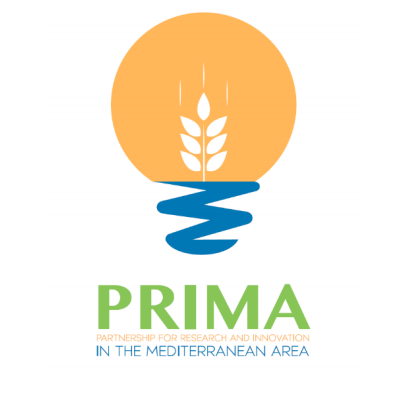
Section 1 – Farming Systems 2019
Deadline: Jul 16, 2019
CALL EXPIRED
CALL EXPIRED
Agriculture
Agrifood
Aquaculture
Young Farmers
Social Farming
Entrepreneurship and SMEs
Sustainable Development
IT Applications
Water Resource Management
Pollution
THEMATIC AREA:
Farming systems
TOPIC:
Topic 1.2.2 Sustainability and competitiveness of Mediterranean greenhouse and intensive Horticulture
TYPE OF ACTION:
IA Innovation action
TOTAL INDICATIVE AMOUNT ALLOCATED TO THIS CALL:
EUR 6.4 million
OPENING DATE:
17 December 2018
DEADLINE;
Stage 1 Pre-proposals - 28th February, 2019 (17:00h CET)
Stage 2 Full proposals - 16th July, 2019 (17:00h CET)
IA – Topic 1.2.2: Sustainability and competitiveness of Mediterranean greenhouse and intensive horticulture
Challenge
Mediterranean intensive horticulture systems, especially greenhouse cultivation, can provide high quality product all-year round with an efficient use of external resources and hand-labour. But the current productive capacity and sustainability in Mediterranean horticulture systems, in terms of quantity and quality can be further improved with adequate use of new biological agro-ecological technologies. Moreover, intensive horticulture and particularly the greenhouse farming sector has often exemplified unsustainable exploitation of resources, especially energy, soil and water, thus representing nowadays a poor environmental system that needs urgent and dedicated attention. Among new greenhouse technologies that are demanded to make sustainable greenhouse agriculture are e.g. efficient greenhouse climate control, efficient use of resources, and sustainable and integrated pest and pathogen control. In the Mediterranean basin, technological update of greenhouse industry and in general the intensive horticulture sector is strongly needed in order to face increasing competition arising from globalisation of production and marketing.
Scope
In the Mediterranean area, the intensive cultivation of horticulture products, such as tomato, pepper and lettuce, can take advantage of favourable environmental conditions for organisational and technological development to result in higher productive efficiency. Technology innovations should include greenhouse climate control, sensors and robotics tools and agronomical practices to improve the efficient use of resources, ultimately fulfilling a circular recovery approach, and also providing environmentally friendly and ecological control of pest and pathogens for production of safe food. Furthermore, special attention must be paid to controlling nutrient leakages to the receiving surface, sub-surface and groundwaters with the purpose to fight growing eutrophication trends.
New soilless systems (including freshwater aquaponics) should be also incorporated and tested in order to facilitate the adoption of efficient fertigation strategies, particularly under conditions of water scarcity and low water quality while ensuring nutrient balance strict and smart control systems to fight eutrophication. Successful technological implementation rests on the effective use by single users or consortia in tight connection with processing industries. This should include integrating sensors data and algorithms into decision support systems. Proposals should then properly analyse the grower’s needs and offer solutions that will be successfully exploited. A socio-economic study is also advocated to demonstrate economic feasibility while preserving and protecting receiving environmental systems (water and soil) of the proposed measures and proper education and training of growers through specific capacity building activities, and to help promoting a new generation of entrepreneurs, less conservative and more aware of the state-of-the art practices. The greenhouse technology providers, mainly SMEs, constitute an important source of employment for the agri-business. The proposals should aim to better connect private companies and public research, facilitating the exchange of know-how from research centres and academy to the private sector and vice versa.
The proposed innovative technologies should be tested in small-scale research and demonstration studies, taking in consideration sustainability of technologies related to intensive horticulture, as well as environmental protection (not to increase eutrophication) social aspects, including labour conditions with particular reference to gender issue. The demonstration sites should consider a wide range of environmental conditions and should also ensure that ensuring no adverse impact to degradation of surface and groundwater water quality of receiving waters and ensuring quality of soil is maintained.
Expected impacts
Proposals should contribute to implement priorities set in the PRIMA SRIA and show the clear link of how expected impacts from the projects are going to implement the expected outputs indicated in PRIMA SRIA
The project results must contribute to PRIMA Operational Objective 4[1] [2]
The project results are expected to contribute to:
- Improved efficiency and cost-effective climatic control procedures and technologies for Mediterranean year round greenhouse cultivation.
- Development of innovative technologies and practices for the production of organic crops.
- Development of innovative and environmental friendly integrated pest management
- Development of new bio-degradable materials to be used in the cultivation systems able tominimize the disposal of residues and contaminants to the environment.
- Cost-effective and socially accepted new cultivation methods aimed at improving hand-labour conditions.
- Novel tools (best practices, decision support system, models, discussion and co-development platforms, ICT, etc.) assisting farmers to improve management.
Public link: Only for registered users
 PRIMA
PRIMA
Please Log In to See This Section